Just about every movie gives at least one character a bulk of the dialogue. Fewer movies give at least one character a great number of totally uninterrupted words. In others, for about a minute, sometimes even longer, all of the spotlight is right on that character/actor. It’s up to them how well they sell the words. Given how monologues typically involve not just important information but personal feelings as well, they’re the actor’s ultimate dream. To really nail the delivery, memorization is of course a factor, but it’s not the ultimate factor. The ultimate factor is passion, the actor’s ability to really exist inside the head of the character they’re currently inhabiting.
Videos by ComicBook.com
What follows are the best of the best when it comes to movie monologues. From threats and explanations to tales of trauma and attempts at outreach.
10) Taken
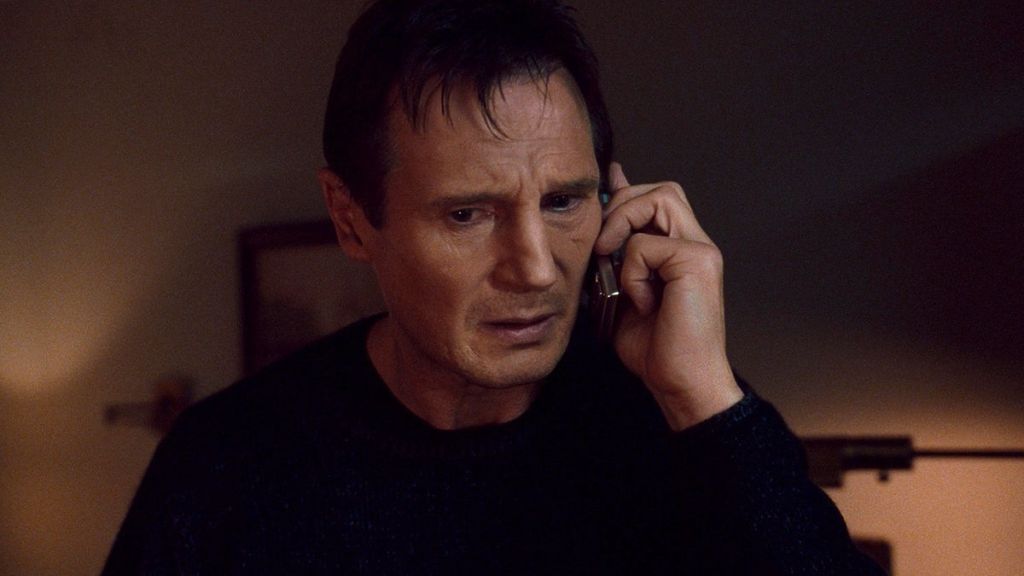
Taken ranks up there with Schindler’s List as an important entry on Liam Neeson’s filmography. After all, it kicked off an entire action-focused phase of his career. One wonders if that would be the case had his Bryan Mills not delivered the instantly iconic threat to those men who have kidnapped his daughter.
“If you let my daughter go now, that’ll be the end of it. I will not look for you, I will not pursue you. But if you don’t, I will look for you, I will find you, and I will kill you.”
9) Gone Girl
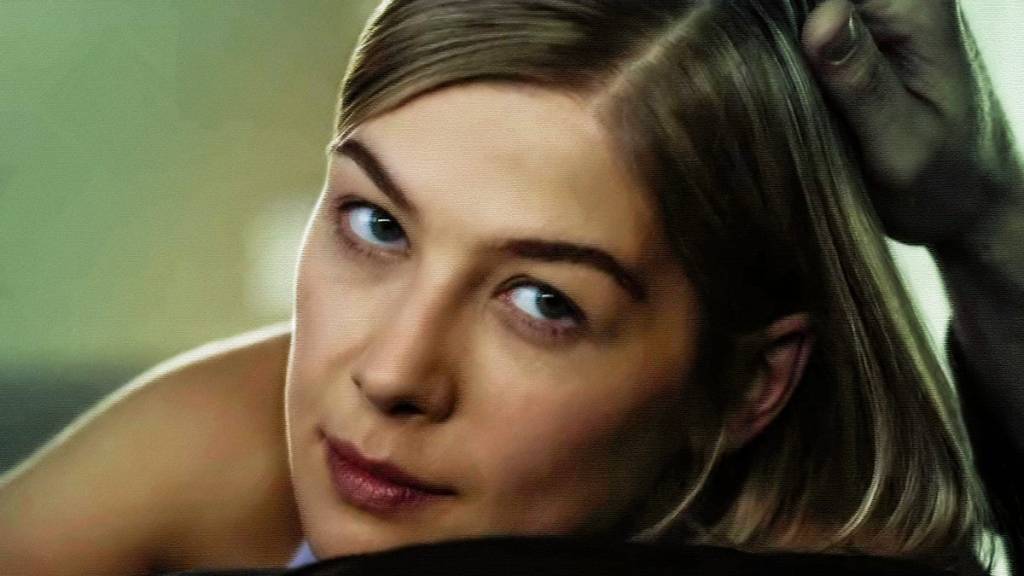
Rosamund Pike’s voice-over monologue in Gone Girl is a gargantuan 744 words. 744 words delivered with a perfect, methodical coolness and confidence. There’s an argument to be made that this monologue shouldn’t be here because, unlike the “USS Indianapolis” speech from Jaws, it was in Gillian Flynn’s (who also wrote the film’s script) source material. However, for one, it was altered for the film and, two, the way Pike delivers it is what takes it from very good to outright great.
“Nick Dunne took my pride and my dignity and my hope and my money. He took and took from me until I no longer existed. That’s murder. Let the punishment fit the crime. To fake a convincing murder, you have to have discipline.”
8) The Color Purple

The protagonist of Steven Spielberg’s The Color Purple is Whoopi Goldberg’s Celie, who is abused by both her father and, after she’s sold off, by her husband. Over time, she’s come to accept that abuse as a fact of life. When her husband’s son, Harpo, marries Sofia (Oprah Winfrey), Celie is surprised to see how much power Sofia has over her husband. Celie outright recommends to Harpo that he beat Sofia. The following monologue is Sofia telling Celie just why that kind of behavior won’t be tolerated. As it turns out, the two women’s backgrounds are very similar, they’ve just gone about handling it very differently.
“All my life I had to fight. I had to fight my daddy. I had to fight my brothers. I had to fight my cousins and my uncles. A girl child ain’t safe in a family of men. But I never thought I’d have to fight in my own house… I loves Harpo. God knows I do. But I’ll kill him dead before I let him beat me.”
7) The Devil’s Advocate

The Devil’s Advocate is an ambitious movie that, more often than not, accomplishes what it’s going for. It’s also consistently buoyed by some of the best work of Keanu Reeves’ career and, especially, every ounce of Al Pacino’s performance. Pacino was born to play the Devil, perhaps even more than he was born to play Michael Corleone. And, once he really gets to let loose in the third act, it’s impossible to take your eyes off him. He’s making a meal of the role, especially when he delivers his raging monologue.
“Who are you carrying all those bricks for anyway? God? Is that it? God? Well, I tell ya, let me give you a little inside information about God. God likes to watch. He’s a prankster.”
6) Pulp Fiction

Until Inglourious Basterds rolled around, there was pretty much a universal acceptance that Pulp Fiction was and would remain Quentin Tarantino’s best film. It was an integral factor of making the ’90s the decade for independent cinema, it revived John Travolta’s career, and featured one of the best soundtracks in movie history. But, more than anything else, it boasted an incredible screenplay, and the extensive monologue provided by Christopher Walken in his one scene may very well be the best example of just how organic yet stylish that screenplay often is.
[RELATED: Samuel L. Jackson Explains Why He Keeps Coming Back to Quentin Tarantino]
“Five long years, he wore this watch up his ass. When he died of dysentery, he gave me the watch. I hid this uncomfortable hunk of metal up my ass two years. Then, after seven years, I was sent home to my family. And now, little man, I give the watch to you.”
5) Good Will Hunting

The late Robin Williams was a truly formidable presence. A hilarious stand-up as well as an incredibly versatile actor, he was an asset to every project he ever graced, elevating even the worst of his movies, like Old Dogs. In retrospect, there were three roles he was perfect for. The title role of Mrs. Doubtfire let him do his trademark riffing while also bringing a tender nature to the character. The other two roles perfected that movie’s two key elements. The role of the Genie in Aladdin let him do the aforementioned riffing without the boundaries of reality as he could literally become anyone. Good Will Hunting, meanwhile, allowed him to mostly put comedy aside and craft a full human being, one with both grief and empathy in his heart. His extensive monologue is a venting of frustration with Will and his stubbornness while simultaneously showing that he still has faith in the brilliant young man.
“I can’t learn anything from you I can’t read in some f***in’ book. Unless you wanna talk about you, who you are. And I’m fascinated. I’m in. But you don’t wanna do that, do you, sport? You’re terrified of what you might say. Your move, chief.”
4) Dirty Harry
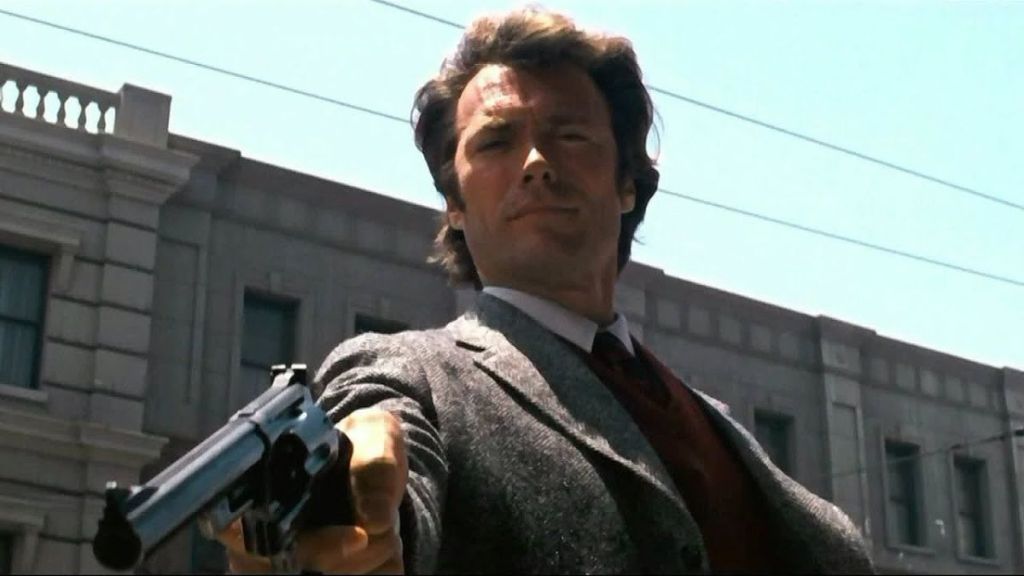
Without a doubt, not every element of Dirty Harry plays particularly well in the 2020s. In that regard it’s a companion piece to Death Wish, with Charles Bronson. But it’s hard to argue with it being the best role of Clint Eastwood’s career. And, when he delivers the “Do I feel lucky” monologue it’s hair-raising. He’s sly, charming, and intimidating all at once.
“I know what you’re thinking: ‘Did he fire six shots or only five?’ Well, to tell you the truth, in all this excitement, I’ve kinda lost track myself. But being this is a .44 Magnum, the most powerful handgun in the world, and would blow your head clean off, you’ve got to ask yourself one question: ‘Do I feel lucky?’ Well, do you, punk?”
3) Network
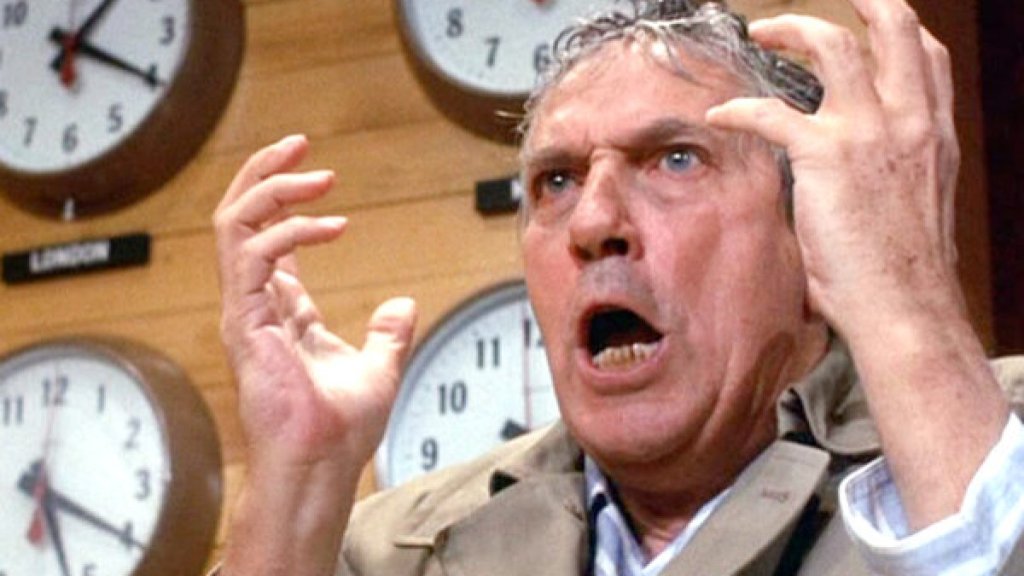
Peter Finch’s role in Network was his final one, and it’s hard to imagine someone going out on a higher note. He won a posthumous Academy Award for Best Actor for his role as UBS Evening News anchor Howard Beale, who stops reporting the news as expected and starts delivering scathing indictments of the system’s faults. It costs him his life, but for a while there he inspires quite a few people to look around them via a different lens. His most iconic speech is more relevant now than it was in the mid ’70s.
“I want you to get up now. I want all of you to get up out of your chairs. I want you to get up right now and go to the window, open it, and stick your head out and yell, ‘I’m as mad as hell, and I’m not going to take this anymore!’”
2) Jaws
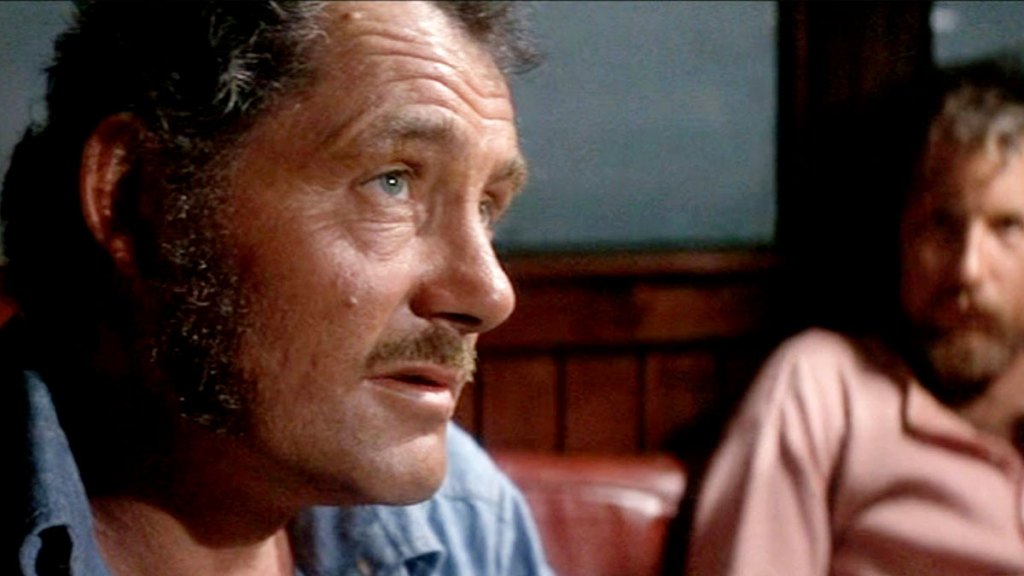
The “USS Indianapolis” speech from Jaws wasn’t delivered as written. There’s a healthy dose of Robert Shaw’s personality in there. He took multiple drafts of it, merged them, and delivered the final self-crafted edit to a stunned crew. There were so many elements working against Jaws, from a malfunctioning mechanical shark to Shaw’s frequent inebriation, that it’s a miracle it works at all, much less stands as one of the best films ever made. This speech is a big part of why it holds such reverence in the hearts of cinephiles the world over.
“Eleven hundred men went into the water. 316 men come out, the sharks took the rest, June the 29th, 1945.
Anyway, we delivered the bomb.”
1) Blade Runner
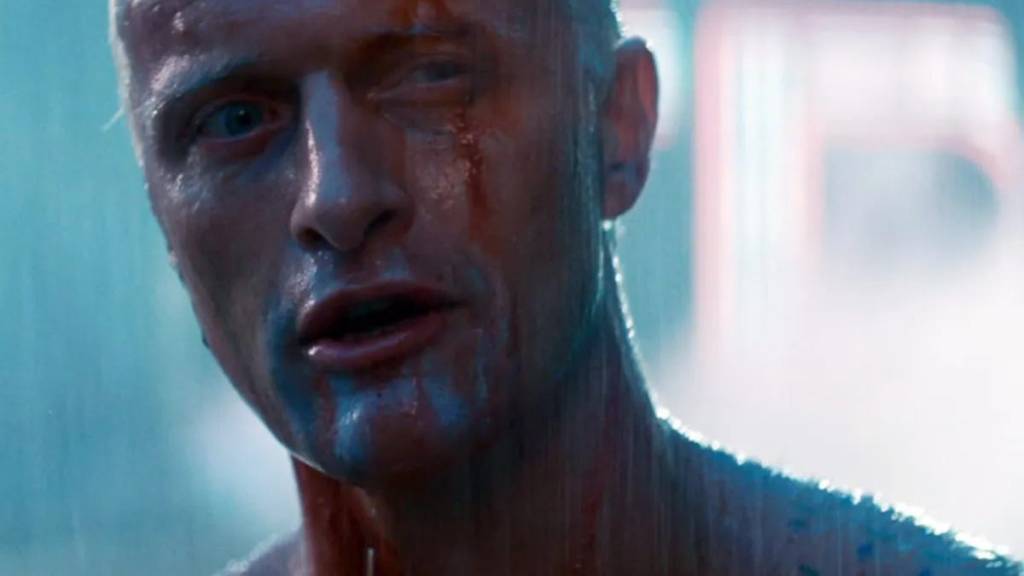
There really is no poor acting in Blade Runner. Everyone seems to be on the same page with what Ridley Scott was trying to craft. But if there’s a best performance among the great performances, it’s Rutger Hauer’s as Roy Batty. This is especially true of his poignant, soulful delivery of the character’s final words. “Soulful” because Batty is a Replicant, he technically has no soul. He technically has not lived in the traditional sense. But as a being who has seen the same things flesh and blood humans have, perhaps even more than the average flesh and blood human, he’s grown to possess feelings about those sights. And, now, he’s seen those like him get picked off by Rick Deckard one by one. He is alone and knows it. It’s debatable whether a Replicant can truly feel sadness, at least to the same degree as a person, but Batty’s speech, and Hauer’s delivery of it, makes the viewer truly wonder if they are, and if their shortened lifespans are ethical, much less fair.
“I’ve seen things you people wouldn’t believe. Attack ships on fire off the shoulder of Orion. I watched C-beams glitter in the dark near the Tannhäuser Gate. All those moments will be lost in time, like tears in rain. Time to die.”








